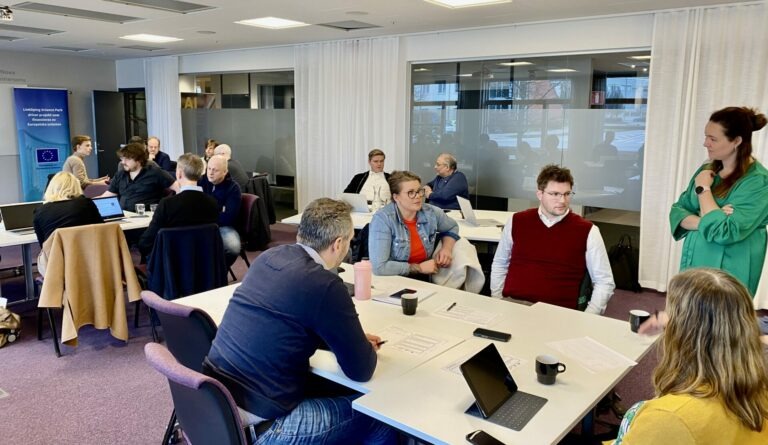Recent research shows that the Swedish innovation system is well adapted for growth but worse at creating conditions for gender equality. According to a dissertation by Matilda Eriksson, a Ph.D. at Stockholm University, the man’s entrepreneurship risks becoming a woman’s trap, financed by public funds.
On behalf of the Swedish state, the public actors in the innovation system must create both economic growth and promote gender equality. The latter means that the actors must integrate the six gender equality policy goals in their activities to ensure that women and men have the same opportunities to shape society and their own lives.
The six goals include an equal distribution of power and influence, an equal economy, and an even distribution of unpaid home and care work. In addition, new research now shows that it is vital to increase the authorities’ and the innovation system’s understanding of gender equality in the work of creating growth.
– Today, we know that men start 70 percent of all companies in Sweden. We also know that more women live with a man who starts a company than the other way around. My research shows that companies are not only built with the male entrepreneur’s contribution and capital, but with the support of the woman’s financial capital, competence, time, and commitment, says Matilda Eriksson, PhD.D at the Department of Business Administration at Stockholm University.
The complexity of research
The study analyzed the policy documents that guide Sweden’s work to create growth by promoting entrepreneurship with public funds. In parallel, 12 women living with men who run companies were interviewed, most of whom are married and have children.
The policy documents present gender equality at the national level as something to be achieved between women and men. In the conversations with the 12 women, however, it appears that gender equality in relation to entrepreneurship is significantly more complex than the entrepreneurial woman’s conditions in relation to the entrepreneurial man.
– If you look at the research historically, the entrepreneur is often portrayed as an individual. The company and the family are considered two separate systems that act independently of each other. Therefore, from a government point of view, there may be a perception that one should not involve the entrepreneur’s private life, even though a broad research base shows that the family is essential for the company’s development, says Matilda Eriksson.
Many of the women in the study testify that they have agreed with their husbands to reduce working hours to put together the puzzle of life and give him good conditions to work with his company. The women are on parental leave with the children because the company requires the full attention of the male entrepreneur.
At the same time, the women describe how the families have lived on her salary, while the man’s salary has been invested in the company. In this way, the man has been able to avoid raising external capital, which usually gives him a larger share of the company. Although the company’s start is difficult to describe as anything other than a team effort, according to Matilda, it is usually only the man who is the owner of the company.
– I sometimes hear that it is not very unusual for women to reduce their working time for the man to make a career. But the difference, in this case, is that the state is very concerned about more citizens becoming entrepreneurs, as economic growth is primarily considered to take place in small and newly started companies, says Matilda Eriksson.
What becomes paradoxical in this context is that previous research shows that companies started by entrepreneurs who are married are more sustainable than companies where the entrepreneur is not married. Furthermore, the company’s development benefits if the entrepreneur’s time can be freed up from childcare and unpaid work in the home.
Se Matilda Eriksson at East Sweden Innovation Week (in Swedish)
– Today, it is mainly men who choose to start companies, and it is primarily those who receive public support to start and develop their companies. At the same time, we see that women must take greater responsibility for both the home and the children and that their salary will be important in financing the start-up. In other words, family support is very beneficial if the goal is to create growth. If, on the other hand, the goal is to create gender equality, it no longer appears to be as beneficial,
says Matilda Eriksson.
Research as a basis for equal entrepreneurship
Research that studies gender equality in relation to the entrepreneur’s partner and the public system that promotes entrepreneurship is very limited today. Matilda’s study is one of the few done in the field. According to her study, it can be seen how incubators and other actors in the innovation system often end up between what should be prioritized in terms of sustainability and gender equality and economic growth – a challenge that Matilda hopes to participate in change through her research.
– My ambition is to draw the attention of current authorities and actors in the innovation system to the fact that there are significant benefits to being more inclusive in the work of promoting entrepreneurship and gender equality. Were we also turn our attention to other women in an entrepreneurial context rather than the entrepreneurial woman. In this way, we can increase the conditions for entrepreneurship and companies at the same time if we take a broader approach to the issue of gender equality, says Matilda Eriksson.









